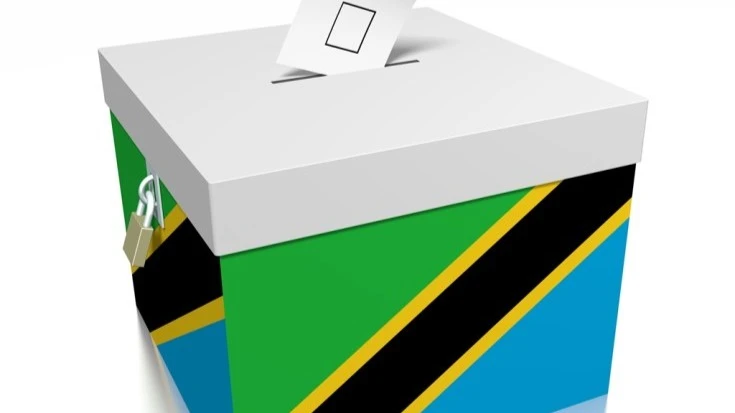Unveiling Tanzania's trademark search importance

TRADEMARKS play a pivotal role in a company's branding strategy, serving as the face of the company, distinguishing its products or services from competitors' offerings.
In today's intensely competitive business environment, where consumers are bombarded with numerous choices, trademarks provide a vital means of identification and differentiation.
A well-designed trademark not only captures the essence of a company's brand but also becomes a symbol of trust and quality in the eyes of consumers. It serves as a beacon, guiding customers towards products or services they trust and recognize.
For instance, the iconic Apple logo instantly evokes associations with innovation, quality, and reliability, contributing significantly to Apple's brand identity and customer loyalty.
Furthermore, trademarks facilitate brand recognition and recall, which are essential components of successful marketing campaigns.
Through consistent use and effective brand building, trademarks become ingrained in consumers' minds, leading to increased brand loyalty and repeat purchases. They serve as a shortcut for consumers, signaling the source of a product or service and influencing purchasing decisions.
Moreover, trademarks can extend beyond mere words or symbols to encompass sounds, colors, shapes, and even scents, providing companies with a broad spectrum of branding possibilities. This versatility allows businesses to create unique brand identities that resonate with their target audience and stand out in the marketplace.
In essence, trademarks are not just legal protections; they are strategic assets that contribute to a company's competitive advantage, market positioning, and overall success in the business landscape.
Importance of conducting a trademark search
In today's highly competitive business world, trademarks are an essential element of any company's branding strategy.
A trademark distinguishes a company's products or services from those of its competitors, and helps consumers identify and remember a company's offerings.
In Tanzania, as in many other countries, trademarks are protected by law, and registration of a trademark is an important step in protecting a company's brand. However, it is equally important to conduct a thorough search before registering a trademark in Tanzania.
Trademark search is the process of investigating existing trademarks in a specific market to ensure that the proposed trademark is unique and not already in use by another company.
A trademark search should be conducted before registering a trademark to avoid conflicts with existing trademarks that may result in legal issues, such as infringement or opposition.
Reasons for conducting a search
There are several reasons why searching registering a trademark in Tanzania is important.
A trademark search will help identify potential conflicts with existing trademarks that may be confusingly similar or identical. This will help avoid legal issues and potential litigation that may be time-consuming and expensive.
A trademark search will help identify any existing trademarks that may conflict with the proposed trademark. If there are existing trademarks that are similar or identical, this may result in legal issues such as infringement or opposition. These legal issues can be time-consuming and expensive, and may damage the reputation of the company.
Conducting a trademark search will help the owner avoid the rejection of the application due to the existence of a similar or identical trademark.
The Trade and Service Marks Act requires that, a trademark must not be identical or similar to an existing registered trademark, and the Registrar of Trademarks may refuse to register a trademark that conflicts with an existing trademark. This may result in additional costs for the applicant as well as delays in the registration process.
Conducting a trademark search will help avoid infringing on the rights of existing trademark owners. Infringement can result in legal action and damages against the infringing party, which can be costly and damaging to a company's reputation.
A trademark search can also help in identifying potential areas for improvement in the proposed trademark. If a proposed trademark is similar to existing trademarks, it may be necessary to make modifications to ensure that the trademark is unique and distinguishable from other marks.
Save time and money: Registering a trademark in Tanzania can be a lengthy and costly process. Conducting a trademark search before registering a trademark can help avoid the rejection of the application, which can save both time and money for the applicant.
Protect brand reputation: A trademark is a valuable asset for a company and is often the most recognizable element of its brand. Registering a trademark that conflicts with an existing trademark can damage the reputation of the company, and may result in loss of revenue and customers.
Fulfill legal requirements: The Trade and Service Marks Act requires that, a trademark must not be identical or similar to an existing registered trademark. Conducting a trademark search before registering a trademark is therefore a legal requirement, and failure to do so may result in rejection of the application.
In conclusion, conducting a thorough trademark search before registering a trademark in Tanzania is crucial for any company looking to protect its brand. It will help identify potential conflicts with existing trademarks, avoid rejection of the application, avoid infringing on existing trademark owners, avoid legal issues, save time and money, protect brand reputation, fulfill legal requirements and identify potential areas for improvement in the proposed trademark.
By taking the time to conduct a proper search, companies can ensure that their trademarks are unique, distinguishable, and legally protected.
This article is authored by Margreth Somme, Intellectual Property & Technology Expert from Rive & Co, a law firm born from partnership between ABC Attorneys and Stallion Attorneys. While the firm provides top-notch legal solutions, kindly note that this article is intended for informational purposes only and should not be considered as legal advice.
Top Headlines
© 2024 IPPMEDIA.COM. ALL RIGHTS RESERVED

























